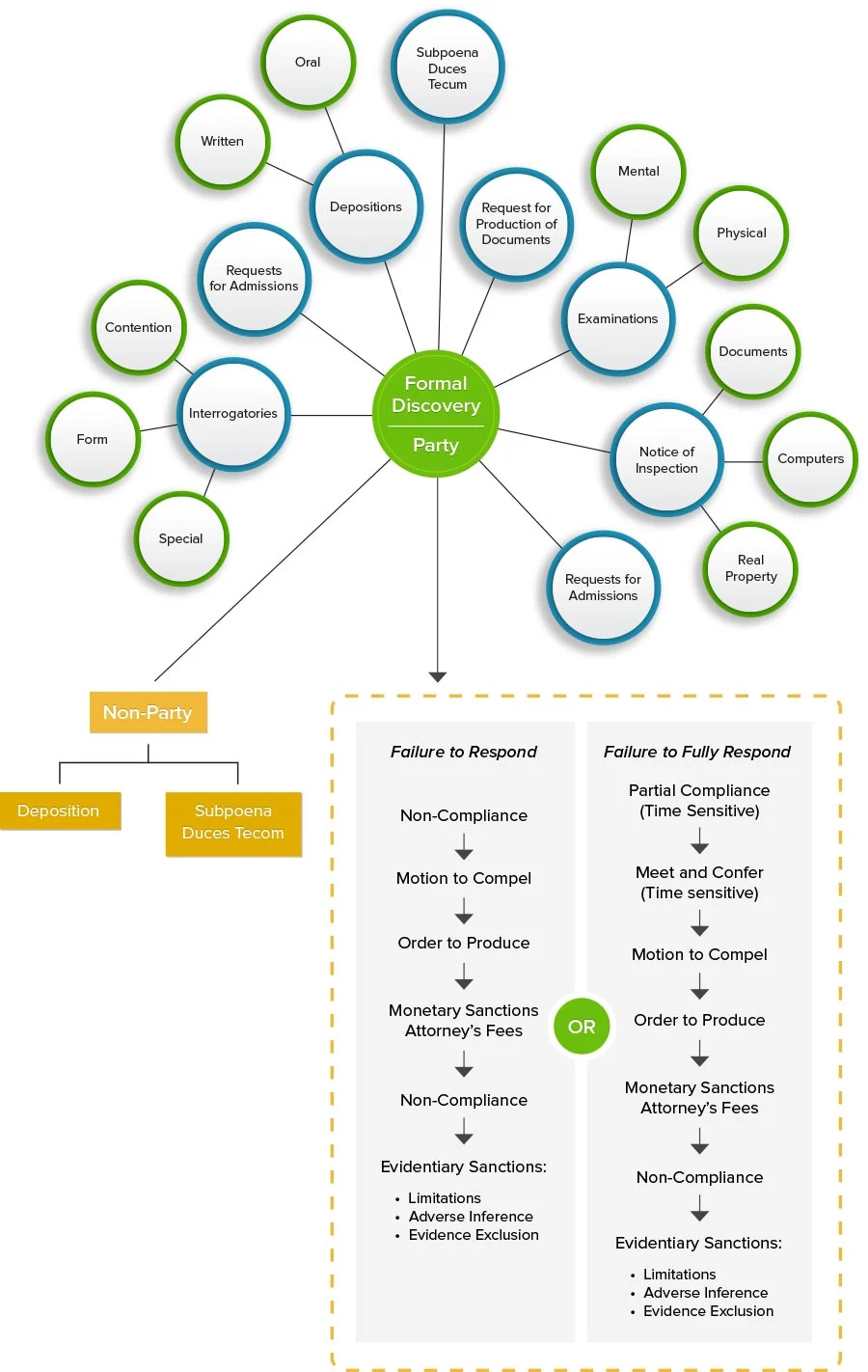Discovery And E-Discovery Overview
What Is The Objective Of Discovery In Family Law?
Parties to litigation are permitted to discover relevant facts and information through several different tools. These tools allow the parties to gather information that may be necessary to prove their case in a trial or to assist in reaching a settlement. Discovery is intended to minimize surprises at trial and to promote the possibilities of settlement.
Parties to a California divorce have a fiduciary duty to voluntarily share all known material facts and information regarding characterization and valuation of all community and separate assets and debts with the other party.
Discovery may also be conducted formerly pursuant to the California Code of Civil Procedure. The code has very specific provisions that must be followed in order to obtain the requested information and documents. These infographics illustrate a number of different tools that are available in formal discovery. If the responding party fails to comply or partially complies with the request, specific rules must be followed to force compliance and request attorneys fees and/or sanctions from the noncomplying party.
Formal And Fiduciary Discovery




